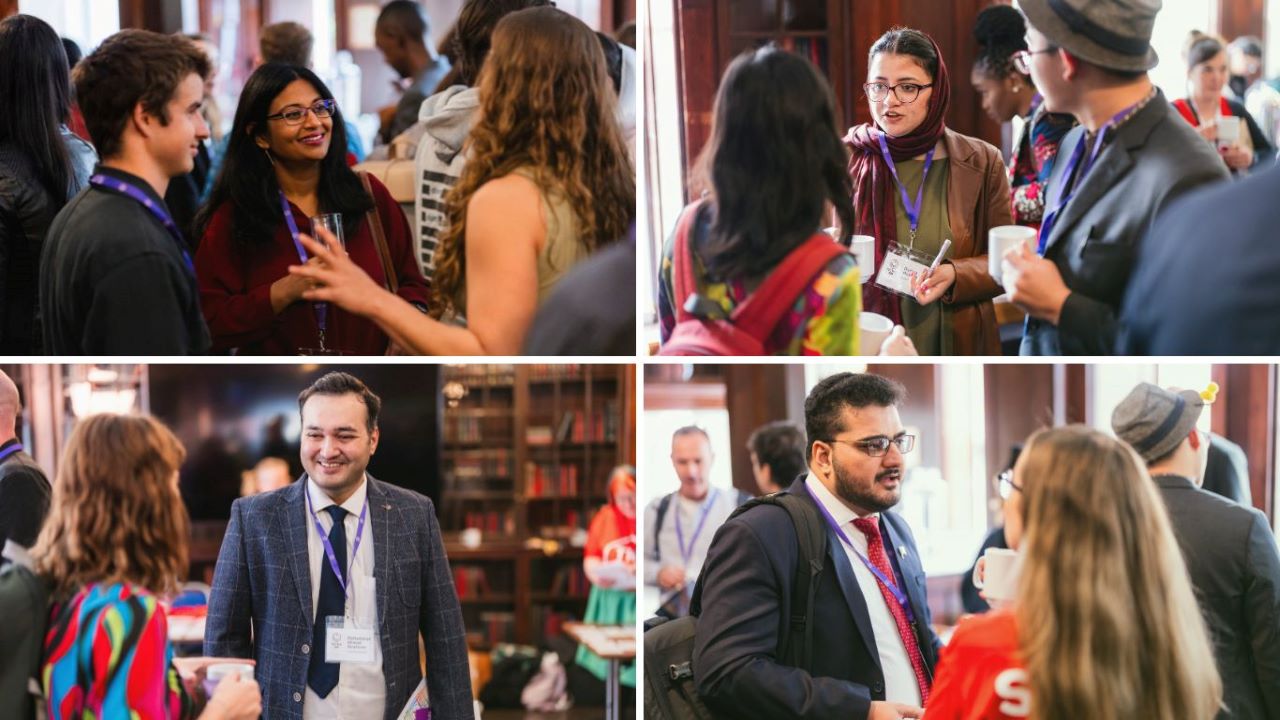
MySociety's TICTeC Event, dedicated to exploring the intersection of technology and civic engagement, brought together thought leaders, innovators, and practitioners to showcase human-centered tools and strategies for transforming citizens' interactions with their governments and communities.
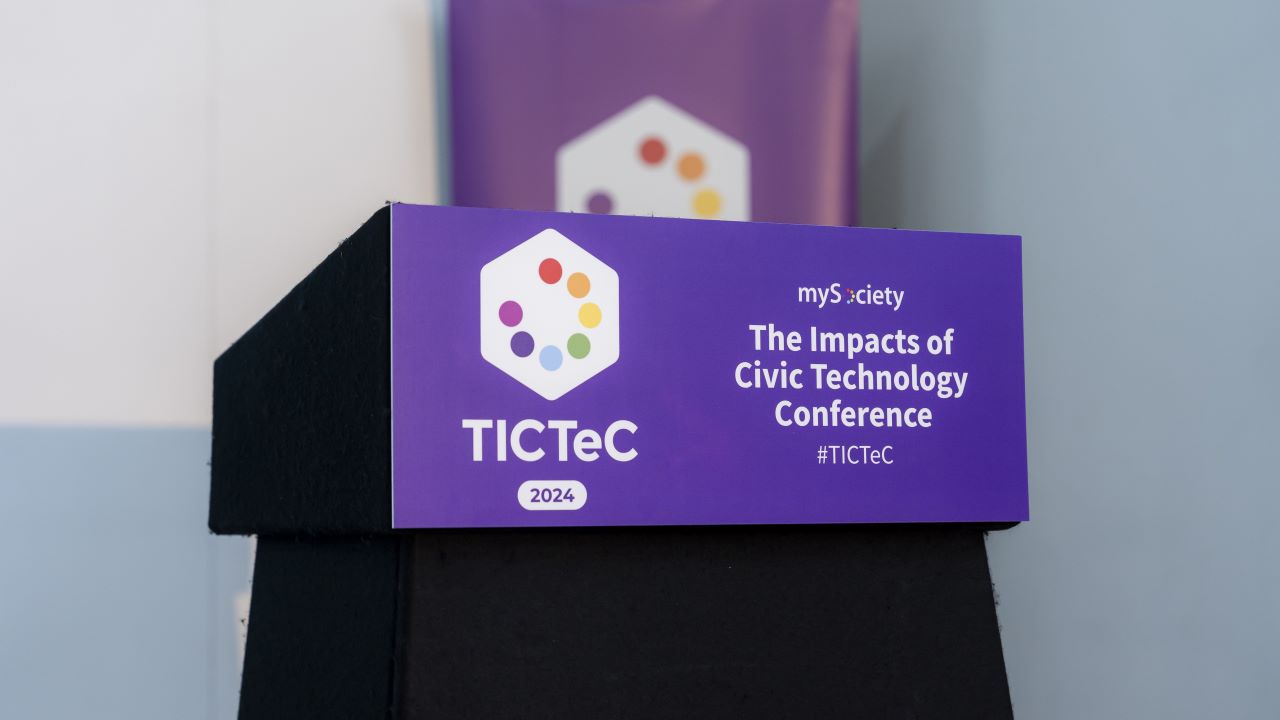
Image Credits: mySociety
Hear from our team, who not only took part in the conference but have lots to share!
Ibraheem Saleem, Director of Fellowships
Attending TICTeC 2024 in London was nothing short of inspiring. The venue buzzed with excitement as people from around the globe gathered to explore how civic tech can enhance transparency, accountability, climate action, and democratic values. A highlight of our first day was María Baron's keynote address. She discussed her work with Directorio Legislativo in holding public servants accountable, setting a motivating tone for the event, and showcasing the power of dedicated community members to drive change.
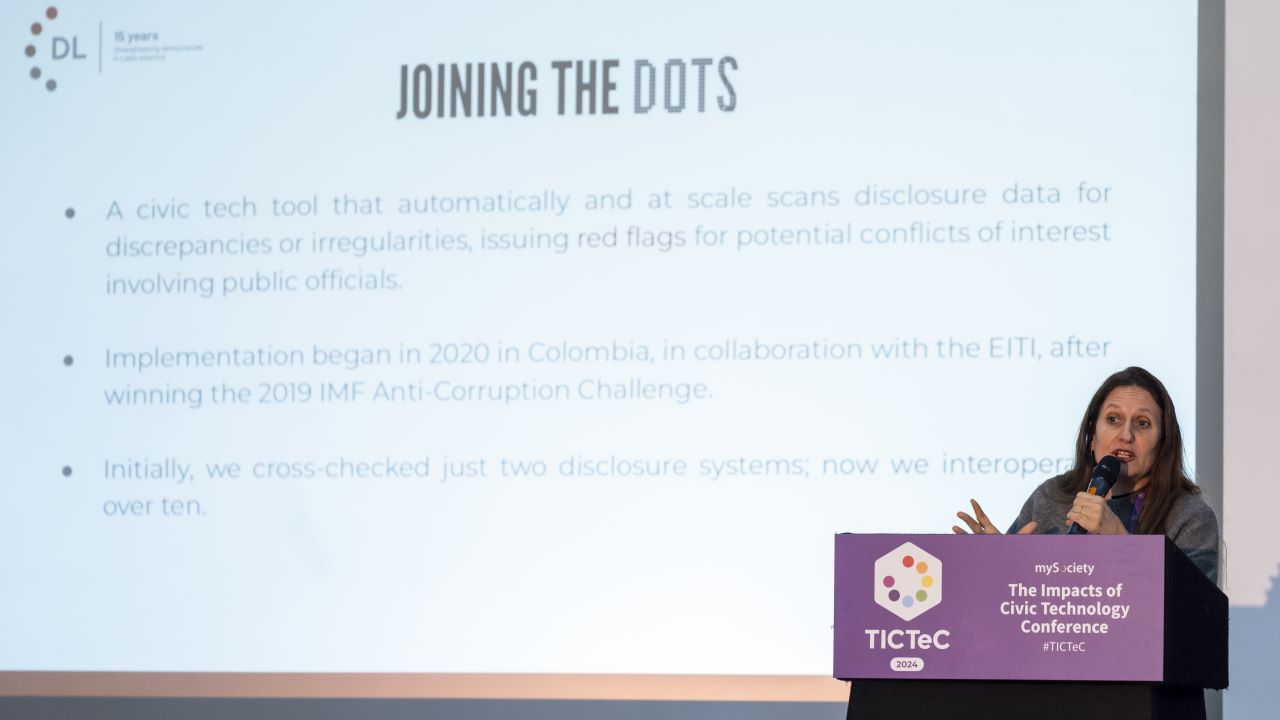
María Baron, Global Executive Director at Fundación Directorio Legislativo - Image Credits: mySociety
One particularly impactful session was Maria Vitória Ramos's presentation on their efforts in Brazil, which has helped uncover corruption, promoted democracy, and advanced environmental protection. Their work has revealed over 100 years of pension records, enhancing the transparency of $80 billion in public funds. This session underscored the importance of civic tech adapting to contemporary challenges, emphasizing the need to stay agile and innovative.
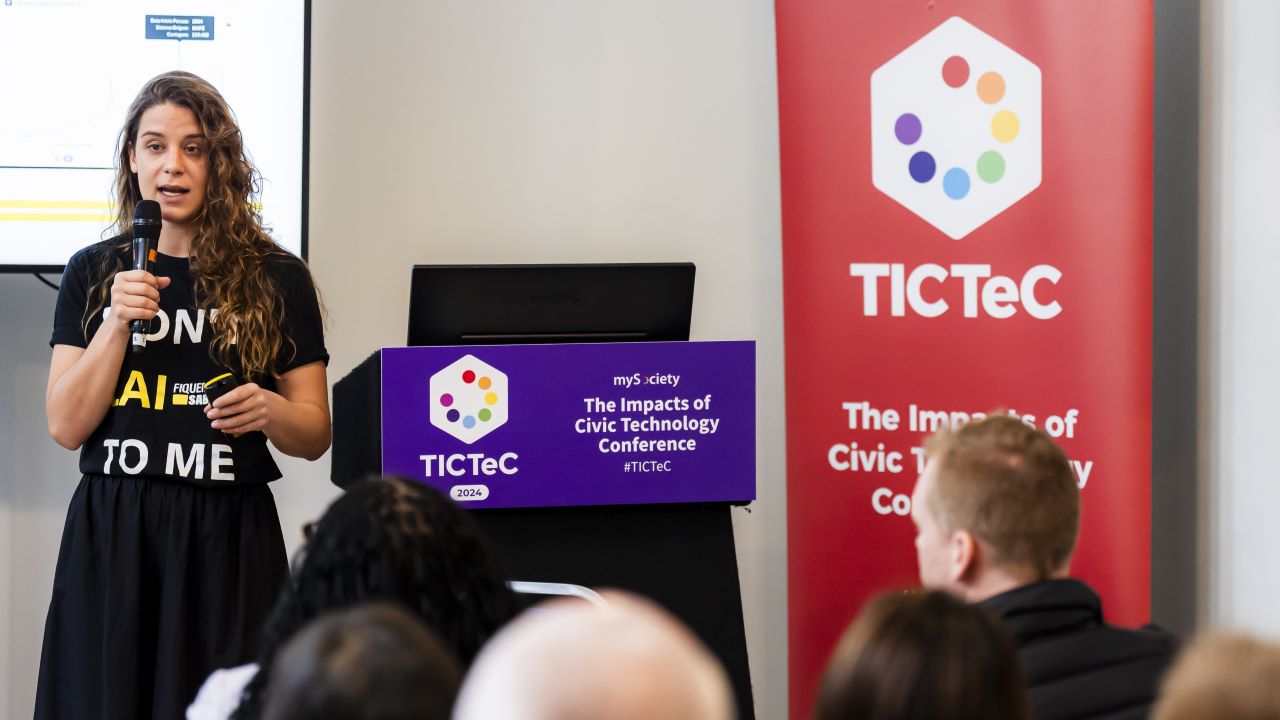
Maria Vitória Ramos, Cofounder and CEO at Fiquem Sabendo - Image Credits: mySociety
The role of AI in civic tech was another eye-opener. The potential of AI to process citizen input and improve civic tech solutions was truly innovative, highlighting how cutting-edge technology combined with human insight can revolutionize civic engagement. Equally thought-provoking were discussions on re-imagining digital infrastructure, stressing the need for designs with active citizen input to ensure inclusivity.
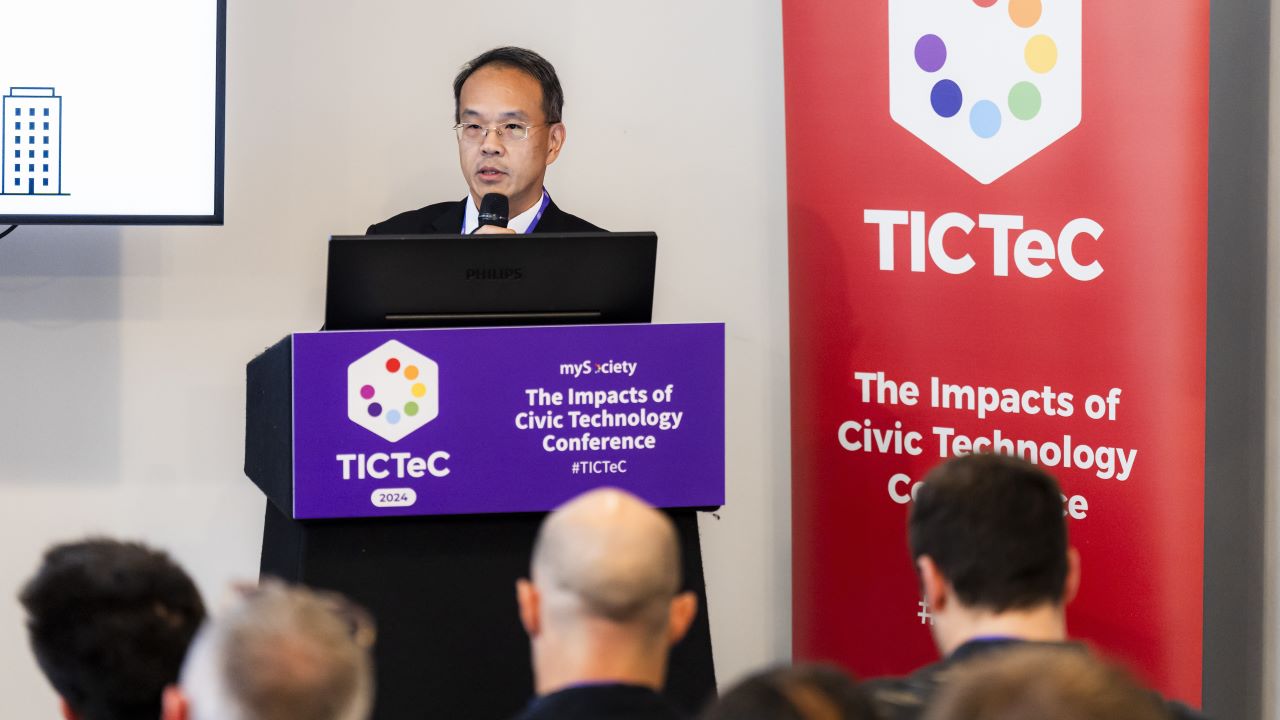
"Future of digital infrastructure" session by Chi-Chao Chang - Image Credits: mySociety
Learning about the work of the Public and Private Development Centre (PPDC) in Africa was incredibly inspiring. Their use of open contracting and the Freedom of Information Act to enhance transparency is a game-changer, showcasing how policy and technology can foster greater accountability. The intersection of civic tech and journalism also captured my attention, highlighting how civic tech enhances journalism through active citizen participation, fostering a well-informed and engaged society.
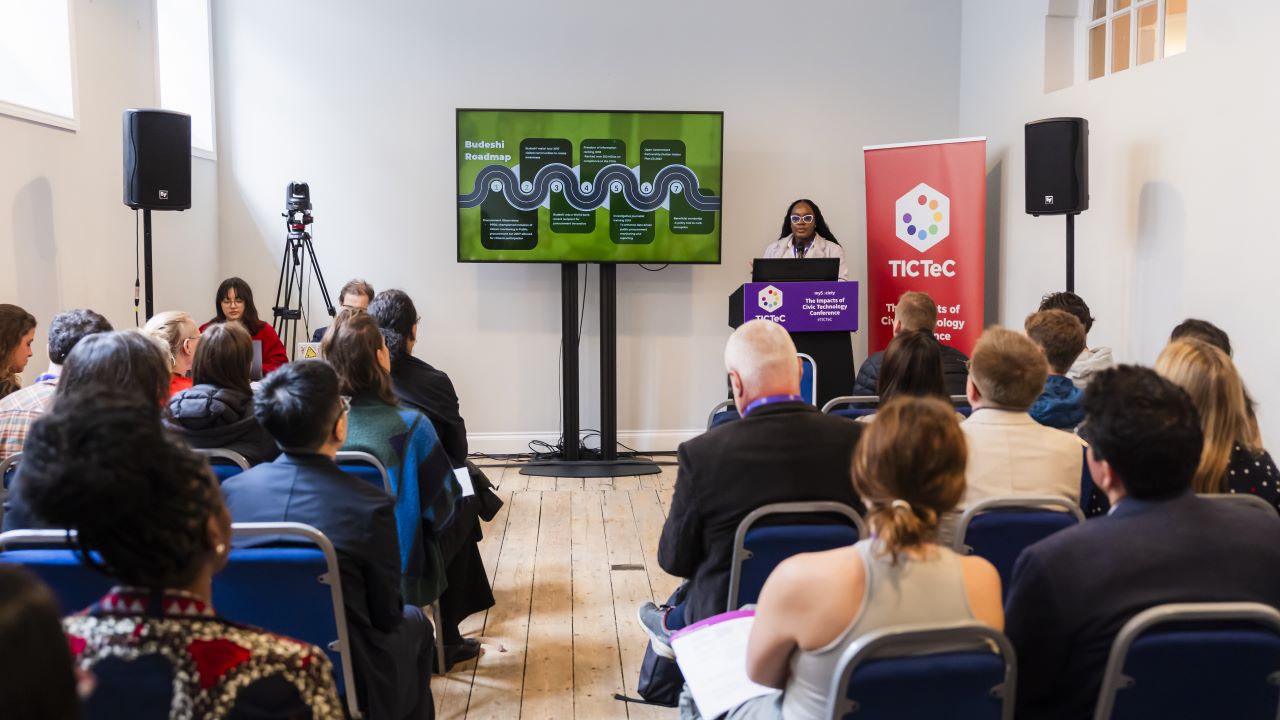
Session by Budeshi team on ”Impact of Budeshi on transparency and accountability in Nigerian government projects” - Image Credits: mySociety
Day 2's presentations on citizen science for climate action focussed on the transformative power of community-driven efforts. I had the privilege of sharing how our team at Code for Pakistan responded to the 2022 floods with FloodLight, mobilizing over 3,000 volunteers to map more than 1,100 data points for relief and rehabilitation. Sharing the impact of FloodLight with a global audience was an incredibly humbling experience. We were inspired to hear about the OpenStreetMap projects in Bangladesh, demonstrating the remarkable potential of collective action in tackling climate challenges. Hearing stories of community resilience and civic innovation reinforced my belief in local engagement and empowerment.
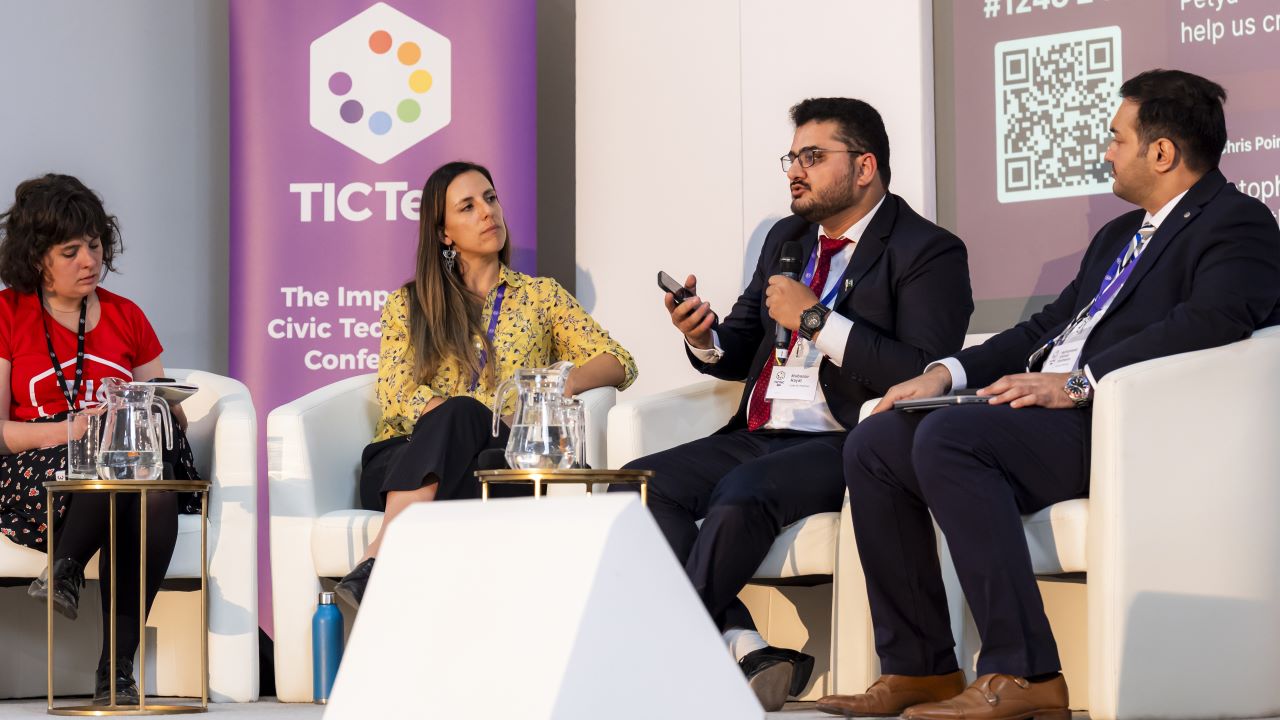
Ibraheem Saleem and Mubassir Hayat presenting “Floodlight” - Image Credits: mySociety
Reflecting on my experience at TICTeC, I am filled with a sense of renewed hope and motivation. The collective efforts of these global organizations go beyond leveraging technology; they empower communities, enhance transparency, and foster a more democratic and inclusive world. Being part of this event was a privilege, reminding me of the profound impact we can achieve when we unite to drive change.
Bushra Mustafa, Technology Lead
On the first day of TICTeC 2024, Vakau J.S from Access Now and I arrived at the Mary Ward House, both double-checking the venue. Inside, we were warmly welcomed by Julia Cushion and directed to the Dickens Library to join other guests. It was a sight to behold—200 individuals from around 35 countries gathered to share knowledge and discuss brilliant ideas. Soon, I spotted my friends Ibraheem Saleem and Mubassir Hayat collecting their lanyards from the front desk.
We then moved to Mary Ward Hall for a heartfelt keynote by Louise Cruise, CEO at mySociety. This was followed by an insightful session by María Baron and a thought-provoking panel on civic tech in the anti-corruption movement. Attendees were equipped with collaterals to join the WhatsApp community, follow the Slido channel for Q&A, and keep track of the schedule and floor plan.
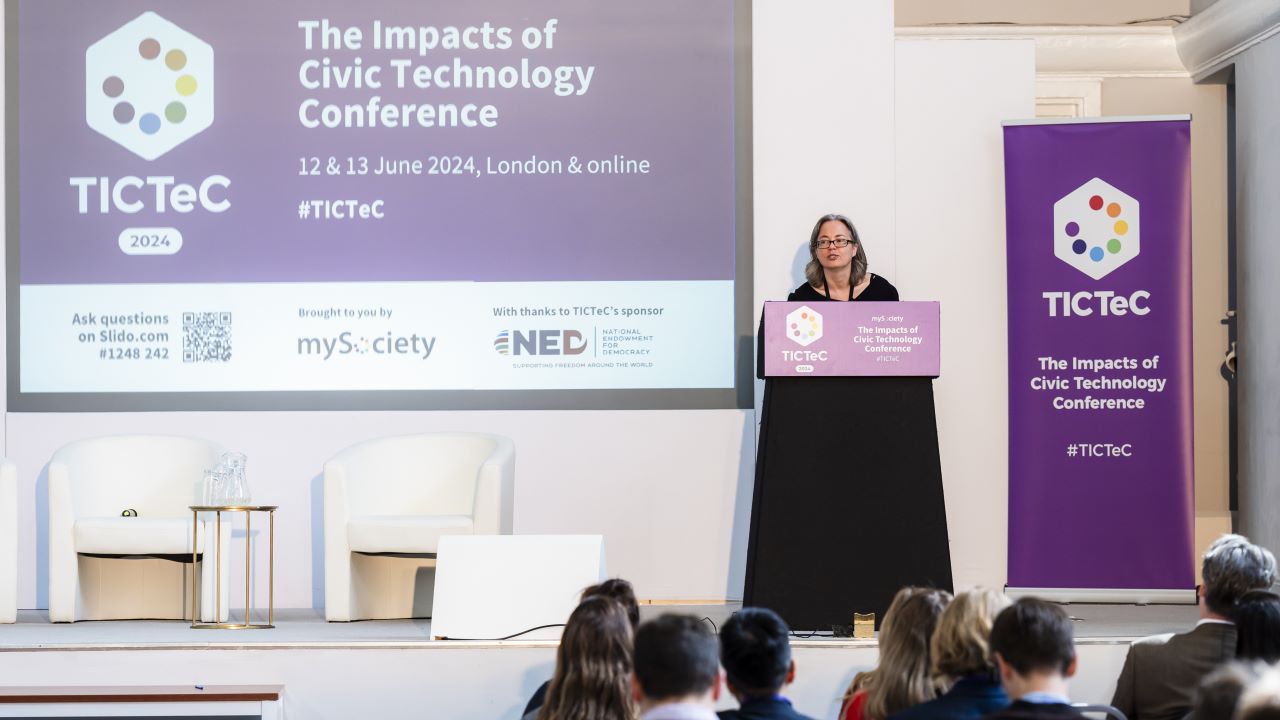
Louise Crow, Chief Executive Officer at mySociety - Image Credits: mySociety
During the panel discussion, Enrique Bravo-Escobar suggested that governments create a tool similar to Yelp to collect public service ratings. Vakau J.S discussed AccessNow's research in East Asia on safeguarding democracy, emphasizing civic tech's role in improving and saving democracy in the region. Helena Puig Larrauri highlighted the issue of disinformation and polarization, noting that polarization is a major concern. Claire Foulquier-Gazagnes shared how extensive user research helps create tools that address disinformation and build trust among social media users.
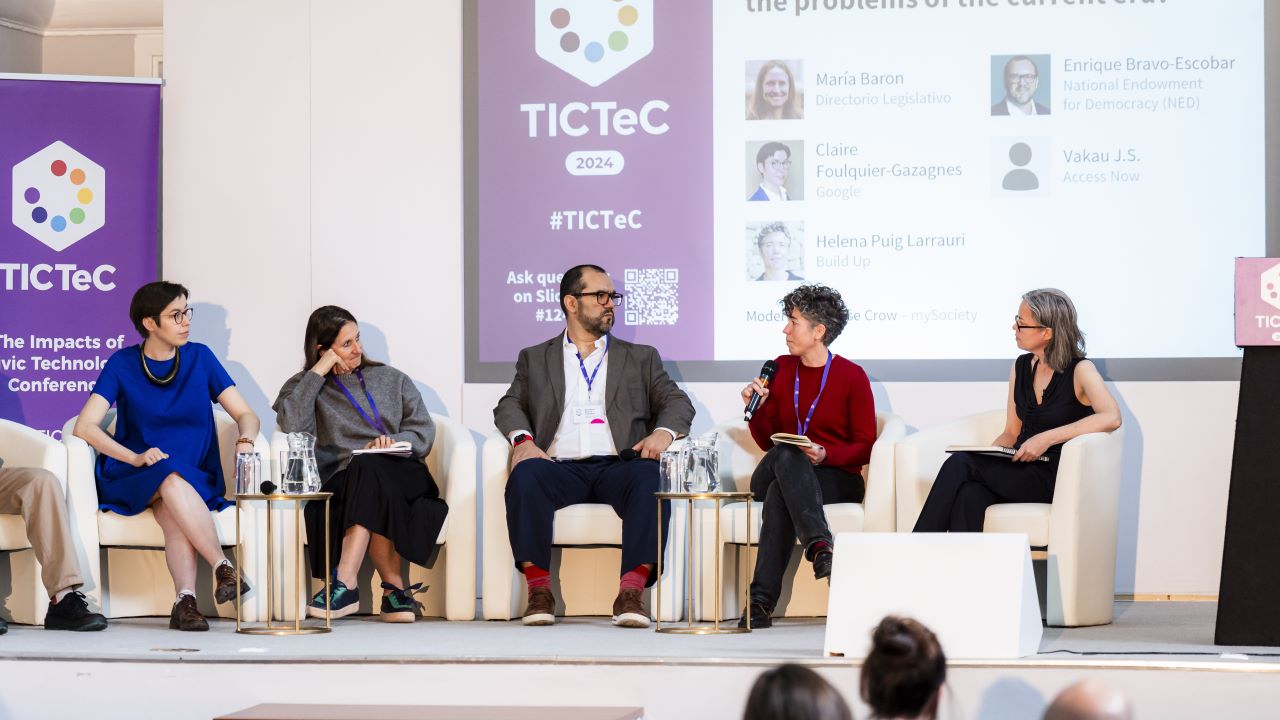
Panel discussion on “Democracy under threat” - Image Credits: mySociety
The day continued with sessions by experts in civic tech, govtech, democracy, and climate action. Participants from diverse backgrounds brought valuable insights. The Dickens Library, Voycey Room, Virginia Woolf, and the courtyard filled quickly during breaks, with attendees engaging in lively conversations until the bell signaled the next session. Sessions were held in three halls, and it was tough to decide which one to attend.
My key realization was the government's rigidity in accepting, adopting, and reengineering processes to meet current societal needs. The rise and fall of civic technology in various regions highlighted the need for a sustainable financial ecosystem.
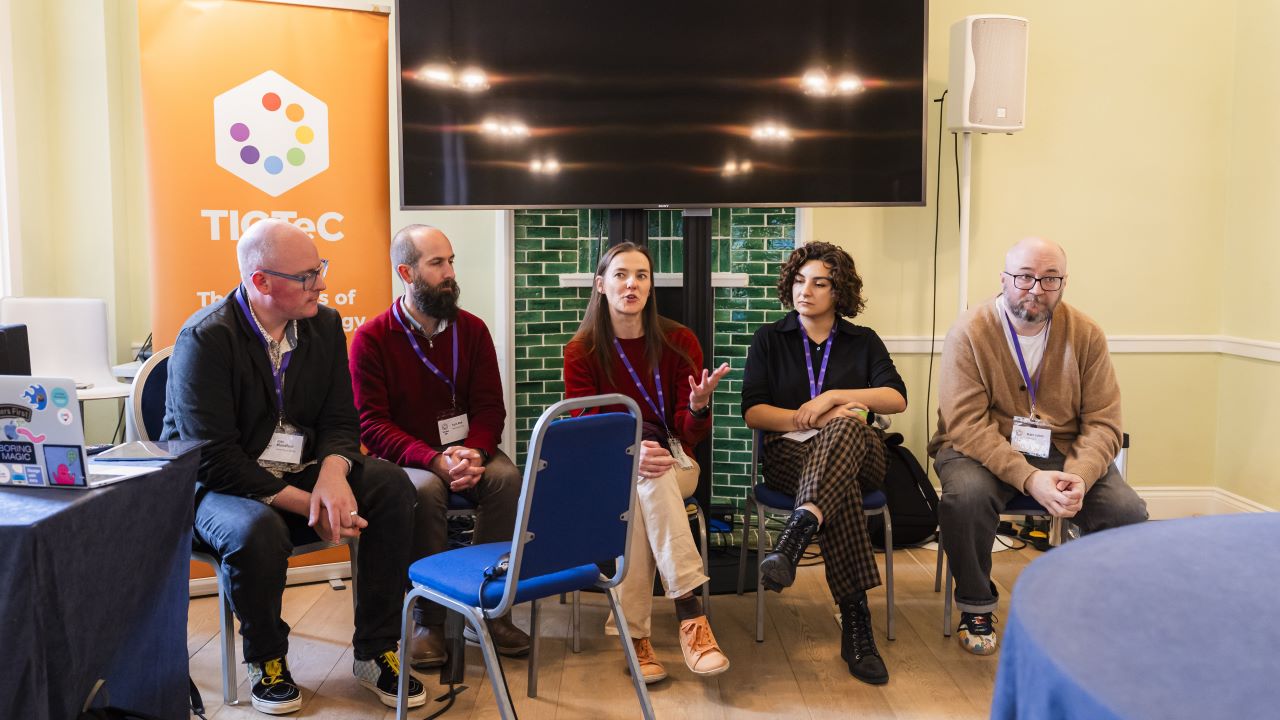
“The place of civic tech in UK society” panel discussion - Image Credits: mySociety
The Taiwanese government's progress in digitizing processes using Web 3.0 and blockchain technology for decentralized identity was both admirable and noteworthy. Similarly, Brazil's digital ID for accessing public services was presented as a case study. The UK academia's support through research and courses allows collaborative efforts between industry and academia on participatory modules.
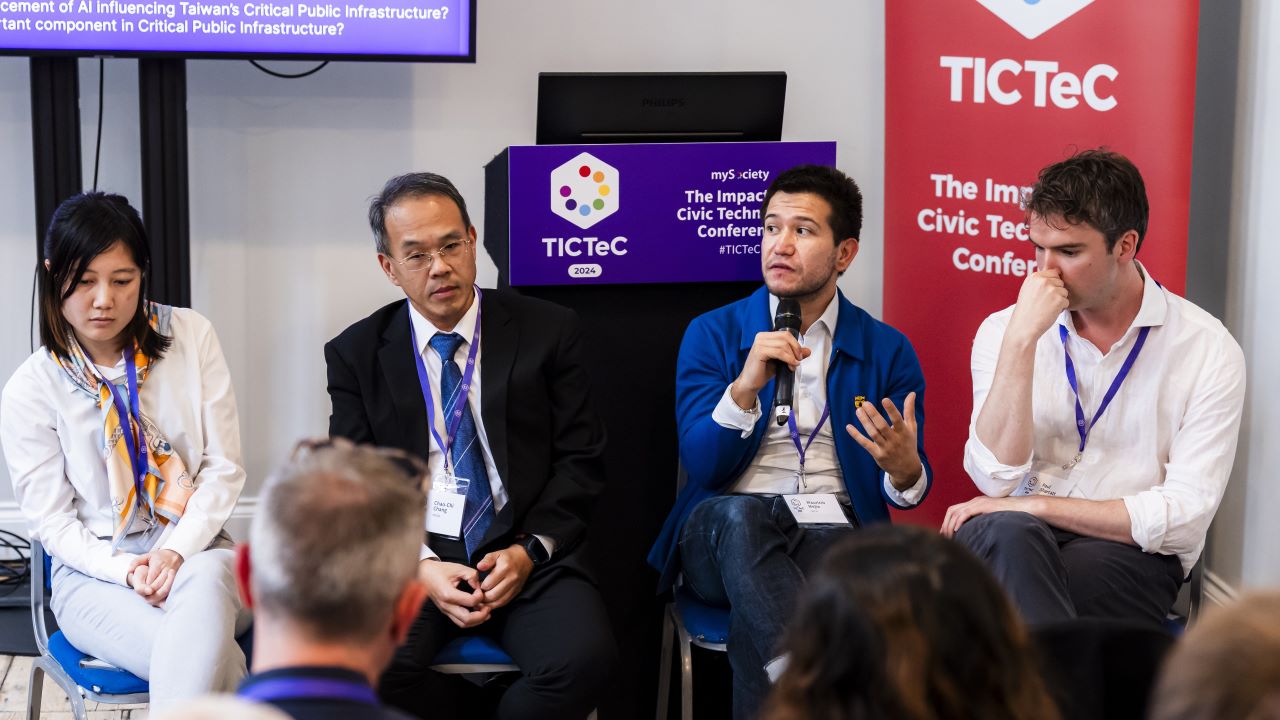
Digital infrastructures in different regions around the world - Image Credits: mySociety
The weather was perfect, and Day 1 ended with new connections, discussions on enhancing civic engagement, and creating avenues for participatory governance, democratic values, and climate action.
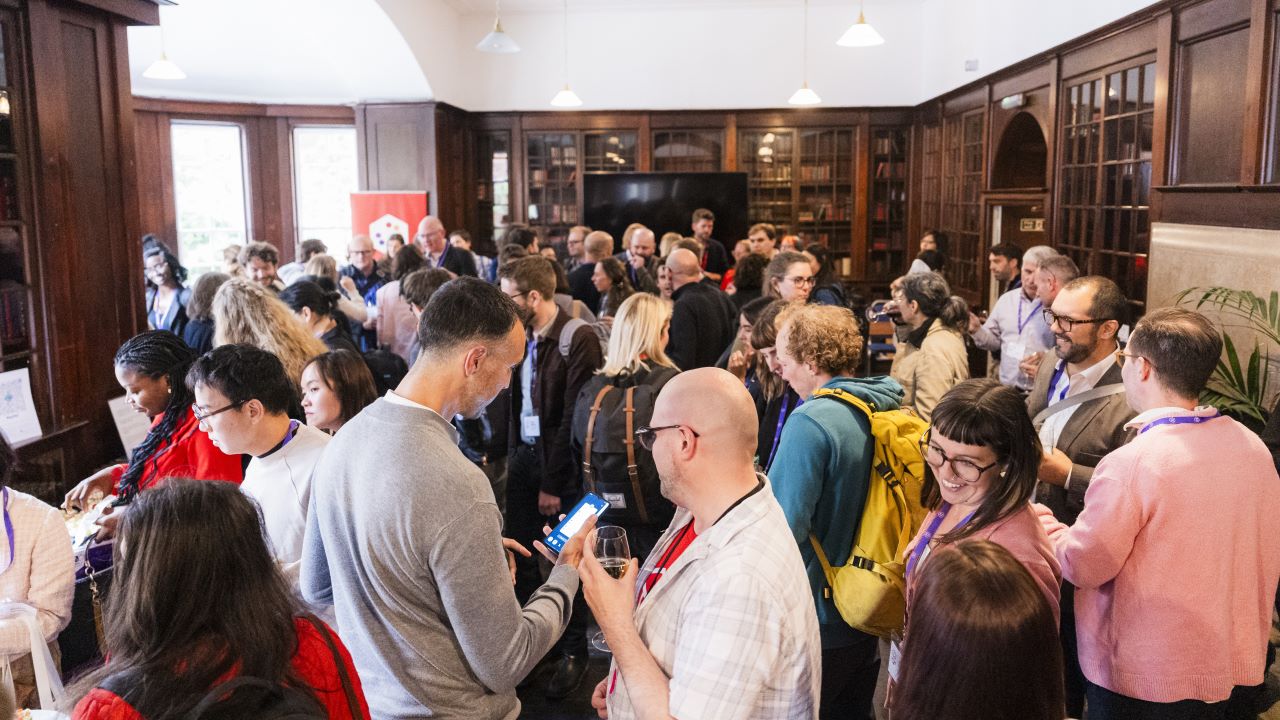
TICTeC speakers and participants - Image Credits - mySociety
Day 2 began with an opening address by Louise Crow, followed by a keynote from Nick Mabey. The day offered various workshops on diverse topics. One workshop introduced "Citizen Science," which involves citizen-driven participatory processes, civic engagement, and technology. This platform allowed discussion, consensus, and solution-driving for broader social impact.
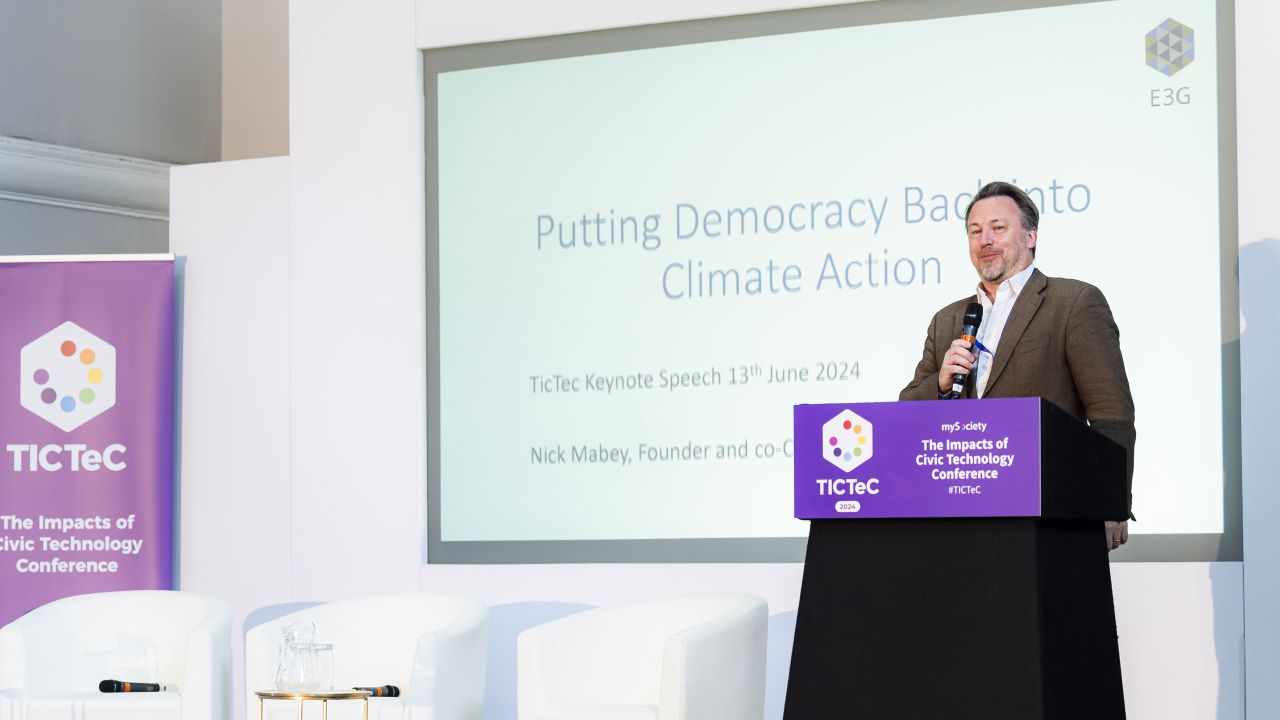
Nick Mabey, Founder at E3G - Image Credits: mySociety
The last day was special for Code for Pakistan. I led a workshop on “Enhancing Inclusion for Women and Other Marginalized Communities within the Civic Tech Sector.” Attendees tackled issues like workplace harassment, intellectual disability, racism, and discrimination. The workshop highlighted how diverse perspectives lead to solutions for equity-deserving groups.
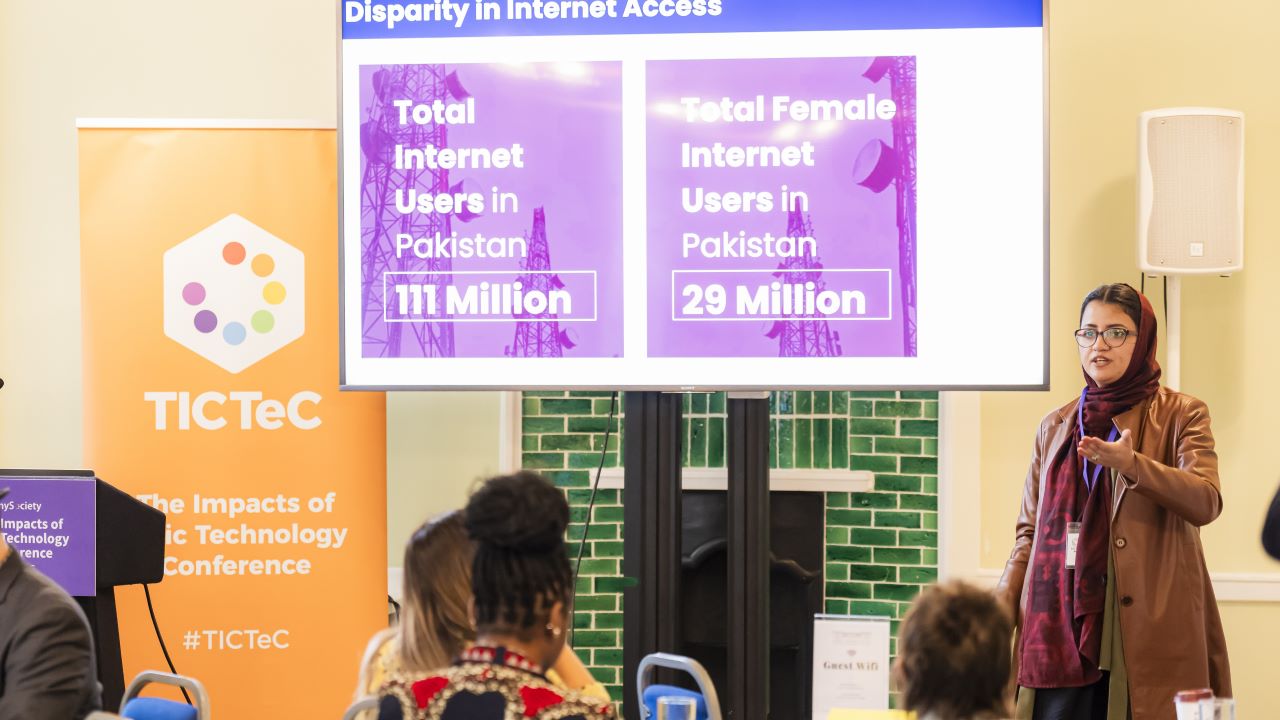
Bushra Mustafa, Technology Lead delivering workshop on “Women and marginalized communities” - Image Credits: mySociety
Ibraheem and Mubassir's session, “From Data to Action: FloodLight’s Impact on Disaster Response in Pakistan”, showcased how Code for Pakistan responded to the 2022 floods with FloodLight, built on the UShahidi platform. We connected with Rhoda Omenya and Petya Kangalova to discuss potential collaborations.
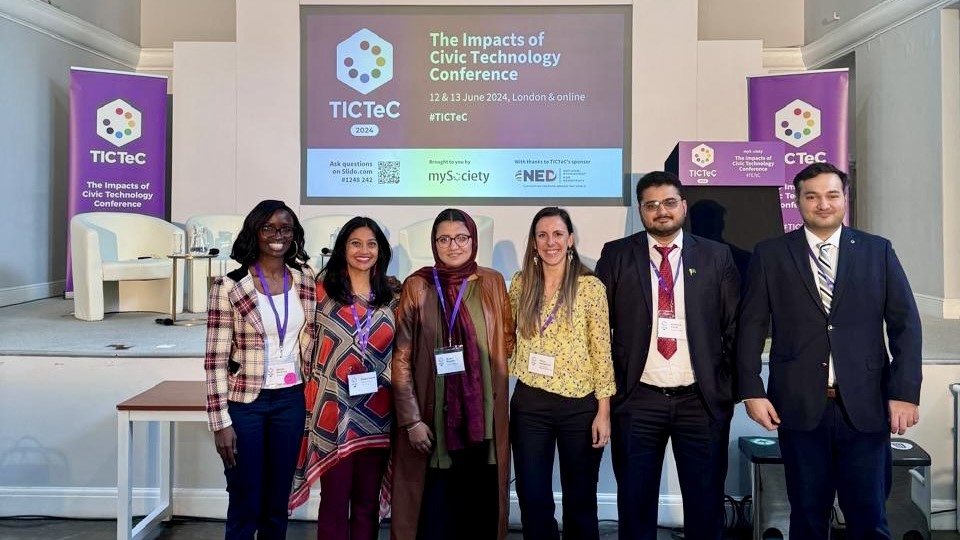
Code for Pakistan team with Rhoda Omenya (UShahidi) and Petya Kangalova (HOTSOM)
Mid-break conversations revealed attendees' admiration for Pakistan's thriving civic ecosystem. Being referred to as a "delegation from Pakistan," second to Taiwan, was a moment of incredible pride for us and helped us showcase Pakistan's impactful civic tech work over the past decade.

Code for Pakistan team at TICTeC - Image Credits: mySociety
The meticulously planned conference by the TICTeC team created a balanced atmosphere for connection and collaboration. The inclusion of virtual audiences via Zoom made the knowledge accessible to all.
To wrap up my experience, it feels like an opportunity of a lifetime. Citizens from all over the globe face similar challenges, but uniting under one roof gave rise to the number of things we can work on together and learn from each other to empower citizens to actively participate and exercise their rights to make the world a better place.
Mubassir, Manager Technology
Attending MySociety's TICTeC 2024 was such a fantastic opportunity! To top it off, I was presenting 'FloodLight' a project close to my heart. The conference provided the right platform to showcase how FloodLight has helped revolutionize disaster response in Pakistan, transforming chaotic situations into an organized relief effort. Presenting alongside Ibraheem Saleem, we highlighted FloodLight's impact on coordinating aid, mapping relief efforts, and harnessing community power during the floods. Our presentation shed light on the necessity of real-time data and collaboration in disaster management.
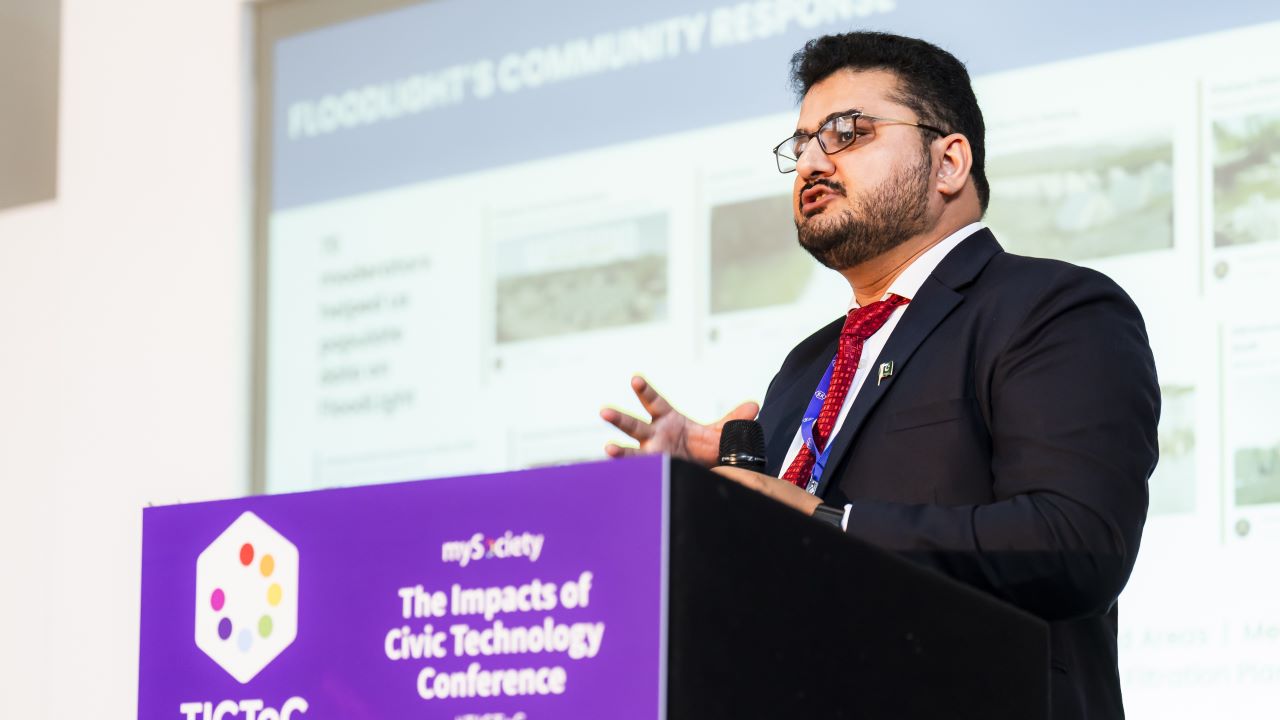
Mubassir Hayat, Manager Technology, delivering a session about “Floodlight” - Image Credits: mySociety
One of the most inspiring sessions I attended was by María Baron from Directorio Legislativo. Her talk on identifying corrupt officials and their networks resonated deeply with me, sparking new ideas on integrating transparency and accountability into our disaster management projects and work. The session highlighted the broader implications of civic technology beyond immediate relief, emphasizing long-term governance and ethical considerations.
Meeting and engaging with influential figures in the civic tech space helped me expand my knowledge in more ways than one. Conversations with Petya Kangalova from the Humanitarian OpenStreetMap Team, Ana-Maria Dima from Commit Global, and Rhoda Omenya from Ushahidi gave me new insights. These interactions reinforced the importance of cross-organization collaboration. Petya’s insights on community mapping and Rhoda’s experiences with Ushahidi’s platforms provided valuable perspectives on enhancing FloodLight’s capabilities. Ana-Maria’s work in disaster management with Commit Global offered practical strategies that we are keen to integrate into our platform.
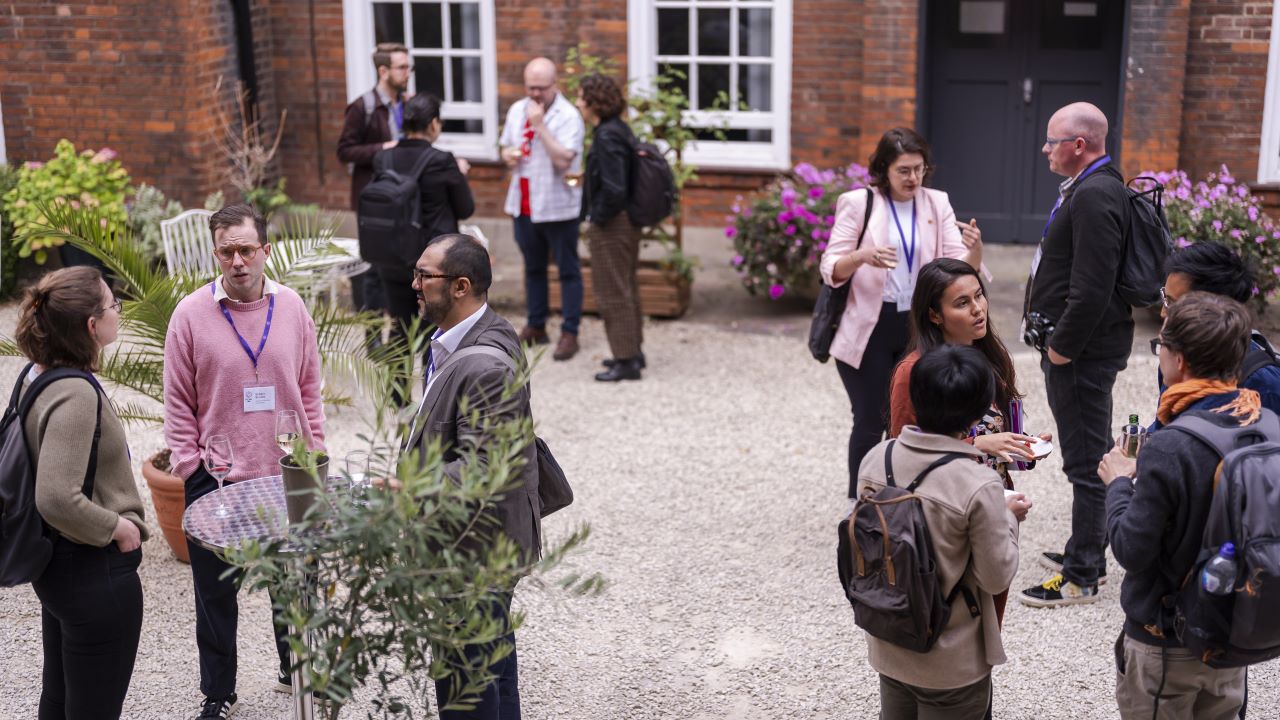
TICTeC 2024 - Image Credits: mySociety
The collaborative discussions emphasized the power of community and technology in tackling disaster management challenges. These exchanges paved the way for the potential for integrating various technological solutions to create a more robust, scalable platform adaptable to different disaster scenarios globally. It became clear that the success of civic tech initiatives hinges on the synergy between technology, community engagement, and transparent governance.
TICTeC 2024 was more than just a conference; it was a convergence of ideas and a testament to collective efforts in leveraging technology for social good. The event renewed our commitment to improving FloodLight and extending its reach to address global disaster management challenges. The insights gained and the connections made will undoubtedly shape our future strategies and collaborations, driving us to create more impactful solutions for the communities we serve.
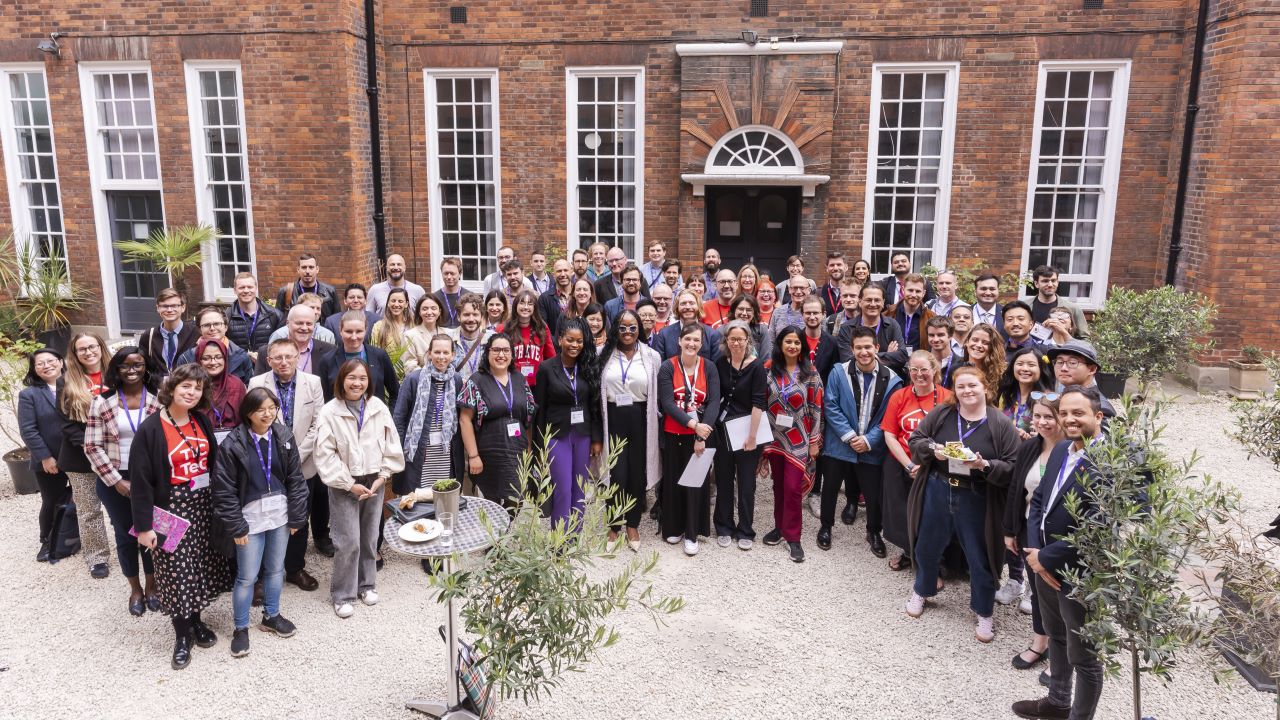
Group Photo, TICTeC attendees - Image Credits: mySociety
Reflecting on the entire TicTec 2024 experience, it's clear that the event shone a light and hope on the endless possibilities of innovation in the civic tech space—the shared knowledge, inspiring stories, and collaborative spirit renewed our sense of purpose and motivation. As we move forward, the lessons learned, and connections made at TicTec will continue to guide our efforts in harnessing technology for social good, ultimately empowering communities and driving positive change worldwide.